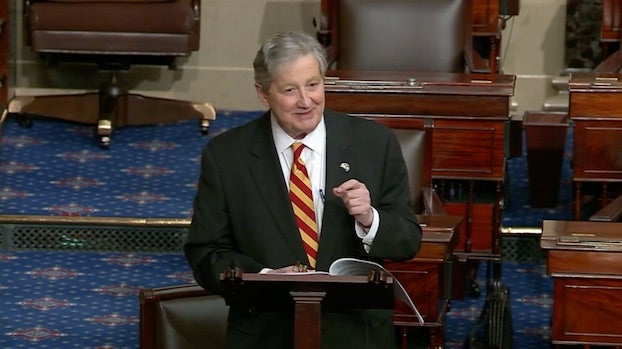Jim Beam column:Income taxes are major target
Published 6:41 am Saturday, January 28, 2023

- Federal and state income taxes have become major targets in the GOP controlled U.S. House and in Republican-led state legislatures. Here is some background on those taxes.(Photo courtesy of compare hero.my).
Some federal and state officials have suddenly become fierce advocates for doing away with income taxes. The 16th Amendment to the U.S. Constitution that was adopted in 1913 permits a federal income tax, but it isn’t the first income tax levied in this country.
Britannica in an explanation of the 16th Amendment said, “Although income taxes levied in support of the American Civil War (1861-65) were generally tolerated, subsequent attempts by Congress to impose taxes on income were met with significant opposition.”
Part of the Wilson-Gorman Tariff Act of 1894 imposed a direct tax on the incomes of American citizens and corporations. However, the U.S. Supreme Court in 1895 declared the federal income tax was unconstitutional.
The Associated Press reported that President William Howard Taft (1909-1913) sent a message to Congress in 1909 urging passage of an income tax amendment.
The first official step toward amending the Constitution was taken by the Senate on July 7, 1909. It voted unanimously to submit the amendment to the states. A few days later, the House approved it 317-14.
Alabama had the distinction of being the first and only state to ratify the amendment in 1909. Eight states ratified the amendment in 1910. Twenty-two states approved it in 1911. Louisiana was one of three states that ratified the amendment in 1912, which brought the total to 34 states.
Both houses of the Arkansas legislature ratified the amendment in 1913, but that action was vetoed by the governor. However, his veto was overruled by the State Department.
Wyoming completed the 36 states (three-fourths) needed for ratification when it approved the 16th Amendment on Feb. 7, 1913. Congress then had to pass legislation for collection of an income tax.
Before the amendment was approved, the two major sources of federal revenue came from customs duties that were levied by tariff acts on goods imported from foreign countries and from internal revenue taxes levied on tobacco, spirits, oleomargarine and “certain other articles.”
In 1911, federal government revenue totaled $700.1 million. Customs duties brought in $313.9 million and internal revenue taxes totaled $31.8 million. The remainder came from sales of public lands, the corporation tax, and various miscellaneous sources.
Legislation passed by Congress in 1913 taxed incomes over $4,000 at 1%; incomes over $10,000 at 1½%, incomes over $20,000 at 2%, incomes over $50,000 at 3%, and incomes over $100,000 at 4%. It was expected at that time that the income tax would bring in something between $110 million and $150 million annually.
Levying an income tax reduced the necessity of issuing bonds. The AP in an April 5, 1913, report said, “Nothing is more unpopular in this country than a bond issue. There will be no outcry of any serious political consequence from an increase in the rate on incomes of say over $10,000. The average man will hold this is a just thing to do.”
Maybe in 1913, but few would argue that it’s true in 2023. In fact, there are serious movements afoot in many states to do away with income taxes. Seven have already done that — Alaska, Florida, Nevada, South Dakota, Tennessee, Texas, and Wyoming.
Eleven states have a flat income tax. Thirty-two, including Louisiana, have graduated-rate income taxes. Louisiana in 2021 lowered its top individual income tax rate to 4.25%. Only four other states have lower top rates, according to the Tax Foundation.
California has the highest top rate at 13.3%. It is followed by New York, 10.9%; New Jersey, 10.75%; Oregon, 9.9%; Minnesota, 9.85%; Vermont, 8.75%; and Iowa, 8.53%.
Individual income taxes are a major source of state government revenue in this country, accounting for 36% of state tax collections in fiscal year 2020, the latest data available, the foundation said.
The Louisiana Legislature has been trying to eliminate income taxes for many years. The changes made in 2021 are supposed to decrease income tax percentages every year there are surplus funds. Once lowered, they can’t be increased without subsequent legislation.
A House committee has also been holding income tax hearings since the most recent legislative session ended June 6, 2022. The individual income tax brings in $4 billion annually and making up for that won’t be easy.
State government has many responsibilities, and those take revenues. Louisiana has a complicated tax system because it has high sales taxes and some of the lowest property taxes in the country.
Sales and income taxes wouldn’t be a burden if legislators had the courage to eliminate and reduce the over $8 billion they give away every year in tax exemptions. That is the state’s biggest and toughest tax problem to solve.




